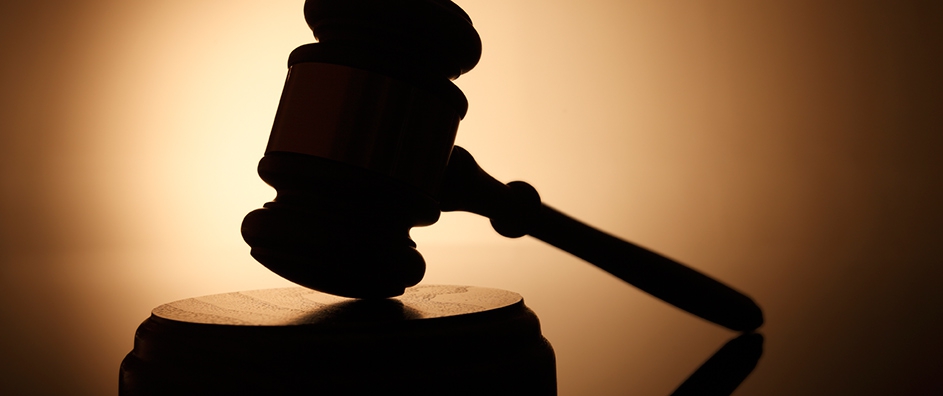The views expressed in our content reflect individual perspectives and do not represent the authoritative views of the Baha'i Faith.
Following the attempted murder of our son, and the subsequent murders of others by the same serial killer, I began to ponder what happens to the soul of a murderer. Murder–the taking of a life the Creator has given–is condemned by all religions and all legal codes:
Wrong-doers suffer in this world, and they suffer in the next; they suffer in both. They suffer when they think of the wrong they have done. They suffer even more when going on the wrong path. – Buddha, The Dhammapada – Sayings of the Buddha 2.
Better to live on beggar’s bread with those we love alive, than taste their blood in rich feasts spread, and guiltily survive! – The Bhagavad Gita.
Whoever strikes a man so that he dies shall be put to death. – Exodus 21: 12-14.
…If anyone killed a person not in retaliation for murder or to spread mischief in the land, it would be as if he killed the whole of mankind. And if anyone saved a life, it would be as if he saved the whole of mankind. – The Qur’an, Surah Al-Maaida 5:32.
Thou shalt not kill. – Exodus 20:13; Deuteronomy 5:17.
Ye have heard that it was said by them of old time, Thou shalt not kill; and whosoever shall kill shall be in danger of the judgment. – Matthew 5:21.
How grievous it is to see how man has used his God-given gift to frame instruments of war, for breaking the Commandment of God ’Thou shalt not kill’, and for defying Christ’s injunction to ’Love one another.’ – Abdu’l-Baha, Paris Talks, p. 42.
Would ye kill him whom God hath quickened, whom He hath endowed with spirit through a breath from Him? Grievous then would be your trespass before His throne! Fear God, and lift not the hand of injustice and oppression to destroy what He hath Himself raised up; nay, walk ye in the way of God, the True One . – Baha’u’llah, The Most Holy Book, p. 46.
Religions speak of the human soul and the afterlife. Baha’u’llah sheds more light on the existence of our life after this one:
And now concerning thy question regarding the soul of man and its survival after death. Know thou of a truth that the soul, after its separation from the body, will continue to progress until it attaineth the presence of God, in a state and condition which neither the revolution of ages and centuries, nor the changes and chances of this world, can alter. It will endure as long as the Kingdom of God, His sovereignty, His dominion and power will endure. It will manifest the signs of God and His attributes, and will reveal His loving kindness and bounty. – Gleanings from the Writings of Baha’u’llah, p. 155.
But how can a soul progress without developing spiritual attributes? It cannot become close to God—what we think of as heaven–but remains far removed from the Source of life, a condition we would call hell. Thus, in order to make progress, a murderer must pay for his crime:
As to the question regarding the soul of a murderer, and what his punishment would be… the murderer must expiate his crime: that is, if they put the murderer to death, his death is his atonement for his crime, and following the death, God in His justice will impose no second penalty upon him, for divine justice would not allow this. – Abdu’l-Baha, Selections from the Writings of Abdu’l-Baha, p. 178.
Baha’is believe that wilful murder should be punished either by life imprisonment or capital punishment, depending on the degree of the crime and any extenuating circumstances. While there should be comparable punishment for killing another person, Baha’is work toward the vision of a new global society where the the thought of even committing a crime would deter a potential murderer:
The communities must punish the oppressor, the murderer, the malefactor, so as to warn and restrain others from committing like crimes. But the most essential thing is that the people must be educated in such a way that no crimes will be committed; for it is possible to educate the masses so effectively that they will avoid and shrink from perpetrating crimes, so that the crime itself will appear to them as the greatest chastisement, the utmost condemnation and torment. Therefore, no crimes which require punishment will be committed. – Abdu’l-Baha, Some Answered Questions, p. 268.
My son’s narrow escape from his own death at the hands of a murderer showed me that we have a long way to go to attain this kind of enlightened society, one in which the pillars of reward and punishment will naturally bring avoidance of crimes:
Consequently, consider what a difference and distinction is there between the material civilization and the Divine civilization! The natural civilization prevents men from doing harm and wrong through force and punishment and thus withholds them from committing crimes. But the Divine civilization so trains men that the human individuals avoid sins without having any fear from (material) punishment; and the very sin itself becomes unto them as the severest punishment. And they will engage in acquiring human virtues, gaining that by which mankind will be uplifted and that which will enlighten the human world with the utmost zeal and fervor. – Abdu’l-Baha, Star of the West, Volume 2, p. 4.
















Comments
Sign in or create an account
Continue with Googleor